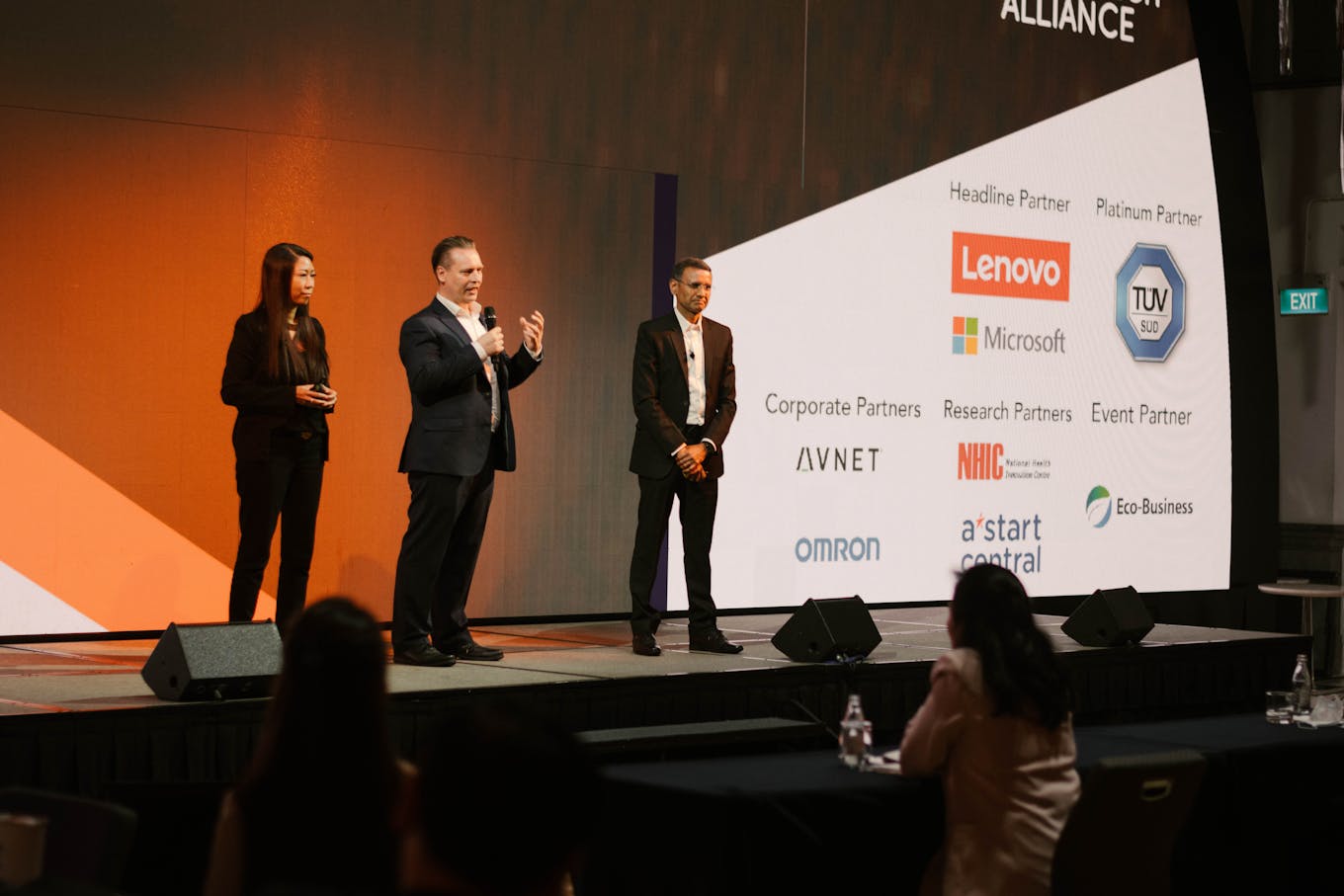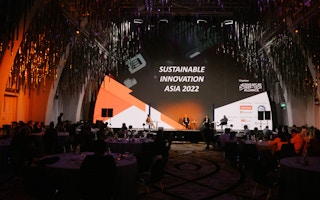Deep-tech innovations - bringing the power of data and computation to the physical world in fields such as artificial intelligence, advanced materials, biotechnology, robotics and drones, photonics and electronics, and quantum computing - are poised to help address some of the world’s biggest challenges, complicated further by a worsening climate crisis.
“A staggering 97 per cent of deep tech companies contribute to one or more of the United Nations Sustainable Development Goals,” Luuk Eliens, co-managing partner at the Singapore Deep-Tech Alliance (SDTA) said at its inaugural flagship event, Sustainable Innovation Asia 2022, this month.
SDTA aims to bring together the know-how of seasoned entrepreneurs, technical experts, research institutes with corporates and investors that have access to market and a wealth of insights into deep-tech macro trends to unlock game-changing deep-tech innovations.
According to Clara Chen, SDTA’s co-founding managing partner: “Global investments in deep-tech quadrupled in the past five years and deep technologies have attracted more funding than any other technologies.”
While investors are willing to back these ventures, some still do not reach the commercialisation stage. The journey of a deep-tech company is fraught with high risk, high capital requirements, a long runway towards generating meaningful revenue, and the difficult task of assembling a diverse team of talents including scientists, engineers, and entrepreneurs.
“To successfully commercialise science, you need an entire ecosystem of public and private partners to jointly de-risk building companies,” Eliens said. “With such an ecosystem in place, the best founders will then be attracted to tackle the hardest problem since the best founders want to leave a legacy.”
The SDTA has identified the need to leverage entrepreneurship and innovation to allow businesses to remain relevant and competitive in an environment that is constantly shifting and posing new challenges. Deep-tech start-ups are key to addressing the environmental, social and other critical challenges of our time.
A panel of leaders from Lenovo Singapore, TÜV SÜD, and Nanyang Technological University (NTU) highlighted greenwashing, cost, managing rapidly evolving complexities, and seeding the “willingness to fail” in ventures as some of the hurdles start-ups are facing.
“
Standing on the shoulders of giants is a very necessary part of innovation and development.
Clara Chen, co-founding managing partner, SDTA
Holger Lindner, CEO, Global Product Service Division at TÜV SÜD, emphasised the increasing complexities of the “triangle of expectations” due to the volatility of the market, a rapidly growing “regulatory jungle”, a shortage of talent, as well as other risks such as cybersecurity.
Ashwin Chari, director of Venture Building at NTUitive, the innovation and enterprise company of NTU, said that to bring innovation and entrepreneurship into organisations, companies can import innovation from the ecosystem by looking at consumers, suppliers, and external market research to supplement the typical research and development approach internally.
“It’s now much more important that you start very, very early,” Lindner said. “Investors and manufacturers require certainty as to what it takes to get a product to market.”
“You want to spend as much time as possible on the opportunity while understanding and mitigating the risks that stand in between your opportunity and the market,” Lindner added.
Bringing ideas to life

Three startups presented their solutions at the event including the founding team from Aprisium [pictured] from L-R: Wini Wong, Lars-Henrik Skjolding and Raghav Narayan. Image: SDTA
The SDTA devised a Venture Building programme which is designed to manage the risk for all parties needed in the ecosystem for successful co-creation of deep-tech ventures.
“It takes a village to raise a unicorn”, said Jonathan Lim, director of Global Innovation Network at Enterprise Singapore. He called for the support of other players such as corporates, venture capitalists and incubators and accelerators to give momentum to deep-tech ventures.
“Standing on the shoulders of giants is a very necessary part of innovation and development,” Chen added.
Since early 2020, SDTA has partnered with A*StartCentral and the National Health Innovation Centre to conduct technology due diligence, before it invited corporate partners to open-up market needs and prototyping facilities. A call for founder applications to join the Venture Builder followed, where only 10 per cent of over 200 founder applications were eventually accepted.
Over nine months, founders and corporate partners collaborated on proofs of concepts. The result is three successful startups presenting their validated solutions at SDTA’s solutions-oriented event.
WaveAI developed a fully functional wearable smart patch (named ‘IronHeart’) that targets paediatric users with congenital heart disease. Reality Studio has created a no-code development platform for businesses to develop augmented reality content for remote learning. Aprisium delivers industry-agnostic testing solutions towards heavy metal and other contaminants management.
Each venture team pitched to a panel of industry stakeholders and investors for fundraising and industry support, including Dr. Yeo Su Ling, director, Venture Creation and Growth, Enterprise Division, A*STAR, Nicolas du Cray, partner, Cathay Innovation, and Remi Choong, principal, Elev8.vc.
As the programme draws to an end, the ventures will continue their journey, taking their technologies to market to serve their customers. Over the course of the next three months, SDTA will select new technologies to add to its venture builder and commence admissions with the pledge to build 10 new deep-tech ventures annually to contribute to environmental sustainability.
According to Wini Wong, co-founder and COO, Aprisium, “Through SDTA, I found two complementary co-founders and together, we successfully commercialised cutting-edge technologies to fulfill our first orders of tackling heavy-metal detection. I couldn’t be more proud of our progress and journey thus far.”
Sustainability and deep-tech nexus
Nigel Lee, country general manager for tech firm, Lenovo Singapore, shared how sustainability is key to “driv[ing] profitability and also the resilience” of a venture. The tech giant, which supported the event, keeps an eye on sustainability outcomes while maintaining a spirit of accountability and a willingness to engage meaningfully with the ecosystem around them.
According to Lee, sustainability in business has come a long way since the Reduce, Reuse, and Recycle era of green business which placed the burden on the consumer to act responsibly. “Producers are now equally responsible for their products in terms of sustainability” in Singapore following a feedback session on relevant legislation three years ago and the rise of the green agenda.
Singapore represents the lion’s share of cash for deep-tech in Asia as the sector matures and continues to attract investors. Disclosed investments in deep-tech start-ups surged from US$324 million in September 2020 to US$861 million in September 2021, with deal count rising 44 per cent year-on-year to 131.
Both XNode Group’s CEO Wei Zhou and HighTechXL’s CEO John Bell concurred that Singapore is a favourable location for the incubation of the next generation of deep-tech gamechangers. According to Bell, Singapore “understands the future and what needs to be done.”












